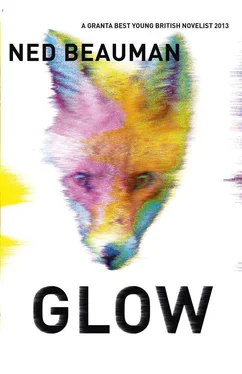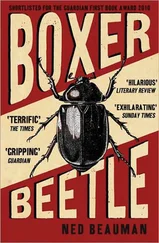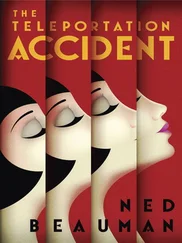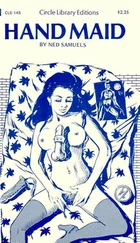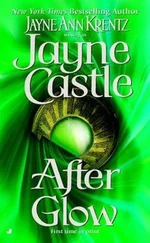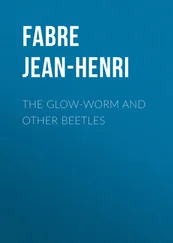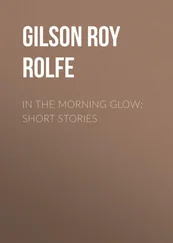Five days ago, climbing the staircase to his flat, a staircase he now loathes because of all the times he kissed her there, he wondered what it might be like to leave London himself, and just thinking about it gave him such a mighty feeling of relief he decided then and there that in a month he would leave London. He’s given notice on his flat. This morning, Saturday, he has twenty-five days left, one cycle, before he says goodbye to the city where he’s lived all his life. He hasn’t told Isaac yet or even chosen where to go. Berlin sounds fun, and cheap, and it’s the only place he’s ever heard of where apparently it’s considered normal to go dancing right after you get out of bed, but of course it’s also the only place that’s forbidden. There’s a part of him that hopes something will happen to change his mind this month, but donating an emetic to a beautiful girl isn’t it. Or maybe a fox on a bus is a start, but it’s not nearly enough.
2.35 p.m.
Every day Raf has to carry a Staffordshire bull terrier down a ladder. At first she used to wriggle but now she sits so happily on his shoulders that sometimes it feels as if she’s reluctant to get down off her bony palanquin. Rose is four years old, black all over except for a white cravat, and for the last thirteen months she’s lived on the roof of an eighteen-storey council block, guarding a radio transmitter bolted to a wall. In a chemistry lesson at school Raf was once shown how to do chromatography, where you watch the different pigments in a smear of anthocyanin extract bleed different distances up a grid of filter paper, the same way they test for MDMA in the blood, and he sometimes thinks of a building like this as a giant chromatograph for the streets below, with nothing soluble enough to reach the very top but police sirens and motorcycle engines and on hot days a faint prickle of smog. The skyscrapers across the river are cramped together into one narrow band of the horizon’s curve, a string of paper dolls, as marginal and unconvincing as one of those tourist board graphics where they cut and paste a dozen famous silhouettes into a greatest hits compilation.
Like all pirate stations, Myth FM have installed their aerial on a separate building from their studio, parasitic off the lift’s AC supply like a tick deep in a scalp, because otherwise if an Ofcom van triangulated the signal they could wreck the whole operation with a single raid. The studio needs only an uninterrupted line of sight in order for the link box they’ve pried out of a satellite TV dish to beam the audio by infra-red up to the main rig. But this also means there’s no one around to guard the transmitter, which is worth nearly a grand, and there are a lot of other pirate stations in south London who’d rather steal a working box than build their own. Theo, the genial forty-one-year-old proprietor of Myth FM, has paid off the caretaker to let him keep two heavy D-locks on the door out to the middle part of the roof, and in the past he’s even experimented with razor wire and electrified scaffolding poles around the rig, but the problem is that the sort of cunts who would know what to do with a stolen radio transmitter are, by definition, self-taught engineers with a lot of persistence, and they can get around anything you invent. So Theo adopted Rose. Maybe you could cut her down with knives if you were lucky, but only an idiot would start a fight with a full-grown Staffie on a roof with no parapet.
Theo’s original plan was to leave the beast up on the roof, feed her twice a week, keep her hungry and resentful; but he loves dogs, and he just couldn’t restrain himself, especially after Isaac told him he had a friend needing cash work. Rose now lives in a sort of shanty cabin nailed together out of tarpaulin, cardboard, insulating foam, and whatever else Raf could haul up the ladder to the roof, with a tub of rainwater next to a pile of old blankets that Rose can nudge together into a bed, and the lift machinery as her noisy neighbour. During the winter, Theo even put in a small electric heater on a timer switch, plugged into the same mains cable as the transmitter nearby, although he made Raf swear never to tell anyone. He sometimes jokes that he should move some students in there and charge two hundred quid a week.
Every day, Raf takes Rose downstairs in the densely annotated lift and gives her a long walk. He knows she must be lonely and bored up there, and he doesn’t like it any more than Theo does, but she was hardly living in luxury with her previous owner: the scars on her snout and her milky left eye confirm what Theo has only hinted at in that respect. Also, as earnestly as Raf has tried to understand this animal, he’s still never got the sense that she cares about being walked or fed on any sort of regular schedule, which is good for him, although he tries to make sure that most of the time he takes her to the park when there are at least a few other dogs around. Whatever the opposite of social anxiety disorder is, she has that.
Theo’s always pleased to see Rose, so today Raf decides to take her over to the Myth studio itself, which is on the fifth floor of a shorter council block down the road with pairs of white concrete balconies running up the right-hand side like tick boxes on a questionnaire and iron railings around the sides that mark off a buffer of grass between the building and the street. (Raf has never understood the point of those token lawns — no one ever sunbathes or plays frisbee on them, but the council still has to mow them all summer. They might as well just put down AstroTurf.) From out in the corridor, under the jittery halogen, Flat 23 looks normal, but in fact its front door is reinforced and soundproofed, and there’s no point knocking: you have to dial a phone number. Today the door is unbolted by Dickson, a stocky guy with a shaved head and a wardrobe full of Scarface T-shirts who works for Theo. He looks down at the dog and shakes his head. ‘You can’t bring that in here.’
Dickson’s never liked Rose, and as a result Raf’s never liked Dickson, but this is unprecedented. ‘What? She always comes in here.’
‘No animals. New rule.’
‘What does Theo say about that?’
‘Theo’s not here.’
‘Where is he?’
‘Away.’
‘Away where?’
Dickson is shifty and hostile at the best of times, so it’s hard to be sure when he’s lying, especially when they both know that they shouldn’t be chatting like this with the door open, but he does not convince Raf when he says, ‘Kingston. Family wedding.’ Raf doesn’t remember Theo ever mentioning cousins back in Jamaica. Perhaps he’s lying low for some reason.
‘You have to pay me, at least. It’s been a week.’
Dickson seems to be willing to break his ‘new rule’ if it will get rid of Raf faster. Inside the flat the stench of skunk is so solid you could boil it for stock. At the end of the hall is the door to what would once have been the lounge, with a marker-pen sign taped up that says ‘Pay before you Play!!’ DJs on Myth are charged twenty quid an hour for their slots, money they’ll make back later in club bookings once their names get known. Isaac used to say the internet would make the pirates obsolete, but Raf never believed that, and there are still at least seventy stations active in London, an invisible and interpenetrative confederacy. Until everyone has a broadband connection in their car, and next to their kitchen sink, and in the cheap hi-fi they just bought from the pawnbroker — which, admittedly, might be just a matter of time — the internet isn’t going to kill pirate radio. The same goes for the digital switchover. What’s more likely is that only the legal stations will make the transition, abandoning the dusty lecture halls and ballrooms of the FM dial to a squat party that can go on for ever.
Читать дальше
